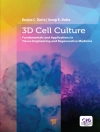This practical guide to the gestalt approach has successfully introduced thousands of trainee therapists to the essential skills needed in gestalt practice. The authors offer practical guidance on the entire process of therapy including setting up the therapeutic session, creating a working alliance, assessment and treatment direction, managing risk, supervision, adopting a research approach, and managing difficult encounters.
The Fourth Edition has been updated to include:
- Some implications of working in the twenty-first century, including working virtually
- Updated content on trauma
- An enhanced discussion of mindfulness and awareness
- New case examples and exercises
- Updated references and further reading
Cuprins
PART ONE: GESTALT THERAPY IN PRACTICE
Chapter 1: The Important First Steps
Chapter 2: Phenomenology and Field Theory
Chapter 3: Awareness
Chapter 4: The Therapeutic Relationship
Chapter 5: Assessment and Diagnosis
Chapter 6: Treatment Considerations
Chapter 7: Strengthening Support
Chapter 8: Shame
Chapter 9: Difference and Diversity
Chapter 10: Experimenting
Chapter 11: Making Contact
Chapter 12: Unfinished Business
Chapter 13: Transference and Counter-transference
Chapter 14: Embodied Process
Chapter 15: Working with Dreams
Chapter 16: Ending the Journey
PART TWO: SPECIALIZED AREAS OF PRACTICE
Chapter 17: Assessing and Managing Risk
Chapter 18: Resourcing the Client
Chapter 19: Depression and Anxiety
Chapter 20: Trauma Part 1: Assessing and Stabilizing
Chapter 21: Trauma Part 2: Processing and Integrating
Chapter 22: Brief Therapy
Chapter 23: Working Virtually
Chapter 24: Spirituality in Counselling
Chapter 25: Ethical Dilemmas
Chapter 26: The Reflective Practitioner
Chapter 27: Self-Supervision
Despre autor
Charlotte Sills is a UKCP registered psychotherapist in private practice and a coach, supervisor, trainer and consultant in a variety of settings. She is a BACP senior accredited supervisor, a Teaching and Supervising Transactional Analyst and member of faculty on the MSc in Executive Coaching and PG Dip in Organisational Supervision at Ashridge Hult Business School where she is Professor of Coaching.Until 2007 she was part of the Leadership Team at Metanoia Institute, London where she was the Head of the Transactional Analysis Department, offering an MSc Programme in TA Psychotherapy and BSc in Counselling. She remains an occasional member of the faculty in the TA, Gestalt and Integrative Departments. Charlotte believes that all human systems – from friendships to organizations – are about people in relationship. She has published widely in the field of relational therapy and coaching, including, with Helena Hargaden, Transactional Analysis – A Relational Perspective (Karnac 2002) and Coaching Relationships (edited with Erik de Haan, Libri Press, 2012).












